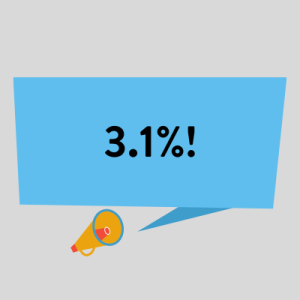Here, CT Partner, Sue Harvey, discusses the rise in Consumer Price Index (CPI) and what analysis may be required by your finance team.
The October 20th announcement that the September increase in the CPI was 3.1%, was lower than anticipated by many.
 This data point is the key benchmark for next year’s uplift in many welfare benefits and for social housing rents. Housing Associations and Local Authorities will be constrained to rent increases of a maximum of 4.1% from April 2022.
This data point is the key benchmark for next year’s uplift in many welfare benefits and for social housing rents. Housing Associations and Local Authorities will be constrained to rent increases of a maximum of 4.1% from April 2022.
Clearly tenants’ rents pay for delivering housing management services that include signing up new tenants, managing queries and problems, and minor and major repairs. They also pay for the borrowings that helped build the existing homes and the borrowings that will support the building of future homes. As grant rates have reduced and associations have taken on more debt for every new social rented home built, delivering a strong operating surplus has become a critical safety measure for maintaining financial sustainability.
Board conversations
A 3.1% CPI, allowing a maximum rent increase of 4.1%, may make for slightly easier conversations in the Board room and council chamber this winter than the potential for a 5% rent increase would have. But those debates will still be difficult, since they will take place against a background of very strong cost pressures on repairs, development and support services, an unequally distributed post-pandemic economic bounce-back, and price increases for food and fuel hitting the poorest hardest.
And let’s not forget that one data point has not reduced the levels of uncertainty. Are the current inflationary effects temporary or longer-term? And how will they translate into our borrowing costs via both the Bank of England policy decisions and funders seeking to protect their real returns?
Financial analysis
We can all take a stab at economic punditry (aka guess work), but far better to ask your finance team for a some succinctly presented analysis to support those discussions and subsequent decisions. Might I suggest:
|
As ever, a simple and clear presentation will take more effort than lots of tables of tiny numbers. But I’m sure that that investment will pay dividends by supporting consensus building and by shaping how you will communicate your eventual decision.
To discuss further, please contact Sue Harvey on: sue.harvey@campbelltickell.com



